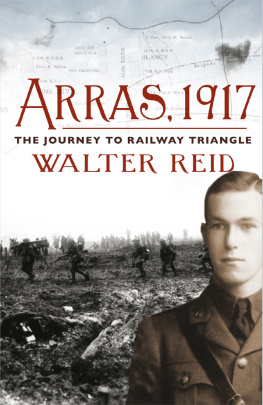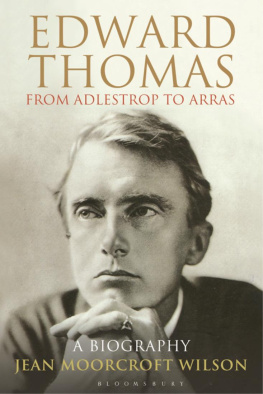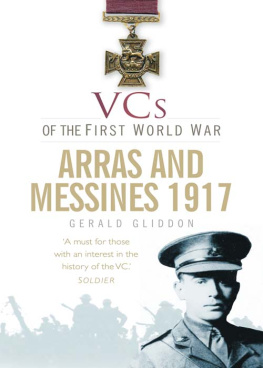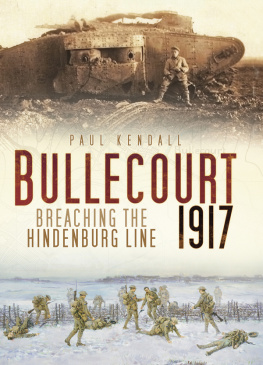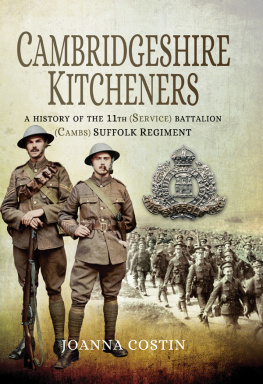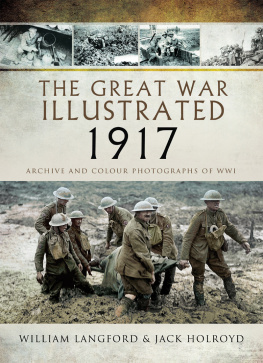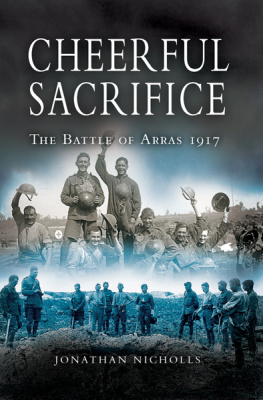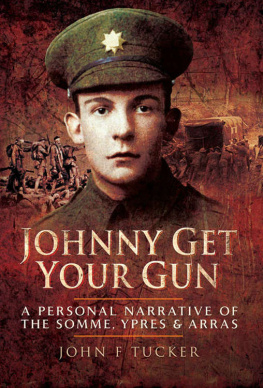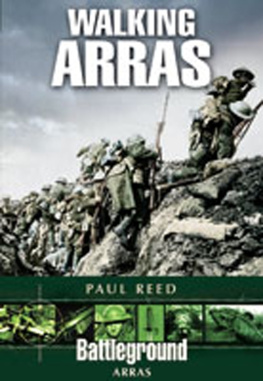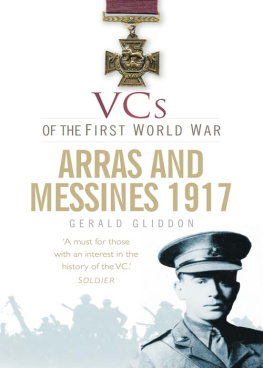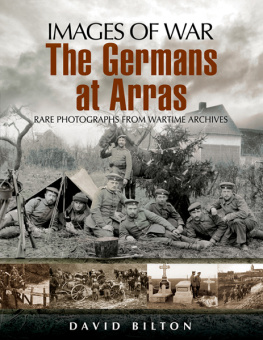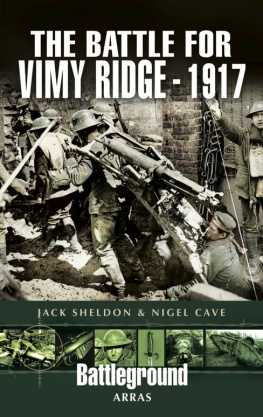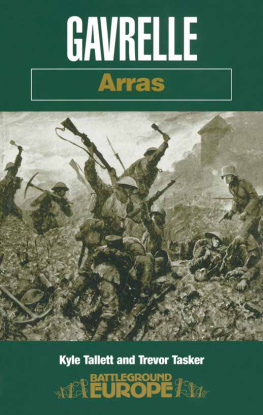Arras, 1917
ARRAS, 1917
THE JOURNEY TO
RAILWAY TRIANGLE
Walter Reid

This edition published in
Great Britain in 2011 by
Birlinn Limited
West Newington House
10 Newington Road
Edinburgh EH9 1QS
Copyright Walter Reid 2003
First published in 2003 by
Tuckwell Press Ltd as
To Arras, 1917: A Volunteers Odyssey
ISBN 978 1 84341 054 6
e-book ISBN 978 0 85790 055 5
The right of Walter Reid to be identified
as the author of this work has been asserted
by him in accordance with the Copyright,
Designs and Patents Act, 1988
British Library Cataloguing-in-Publication Data
A catalogue record is available
on request from the British Library
Typeset by Antony Gray
Printed and bound in the UK by CPI
To The Memory of
ERNEST REID
and for
JANET, JULIA & BRYONY
Foreword
This book was conceived as a short memoir of Ernest Reid, who died in 1917, of wounds sustained in the Battle of Arras.
But as I wrote, I found that it was necessary to put his small part in the 191418 war into the context of a conflict of which many people only have a series of disjointed images. Much more significantly, the scope of the book extended itself as I realised how foreign the cultural and intellectual institutions of a hundred years ago would be, if not to my childrens generation, then certainly to the next. And so, I have endeavoured to put Ernests life into its moral as well as its historical context, to try to describe the climate in which he grew up, and the influences which formed him and his generation, the generation which supplied the subalterns of the Great War. As a result, although the book remains primarily a biography of its subject, it also explores the spirit in which Britain, still essentially Victorian, went to war in 1914.
To a large extent that spirit had evaporated by 1939, and I do not think it can be said to exist in the conflicts of our time. That is not necessarily a change to be deprecated, but it is worth considering the fact that the officer class, and to an extent the other ranks, in the First World War were imbued with a notion of duty and a code of behaviour that in its way was as remarkable and is now as obsolete as the chivalric rules of medieval combat.
This code, this submission to duty, formed a generation for their rle and determined their fate in the carnage of the Western Front. And it is for that reason, and not just because we know its end from the beginning, that the story of Ernest Reid and his contemporaries is ineffably sad.
Acknowledgements
It has been a surprise and delight to encounter the readiness of scholars and other experts to give generously of their time and to share their knowledge and experience.
I have to record a great debt of gratitude to the late Lord Jenkins of Hillhead, OM. He read and revised the typescript of the book, and without his support it would not have been published. Even at the end of his life his enthusiasm and his intellectual vigour were enormous. I am very grateful to him.
Sir Martin Gilbert, CBE, and Professor T. C. Smout, CBE, Historiographer Royal in Scotland, read the book in draft form and it has benefited hugely from their revisions. Their suggestions have resulted in the excision of many mistakes (though the responsibility for surviving solecisms is mine). I greatly appreciate their help and encouragement.
I wish to express my gratitude to: Malcolm Balen, Professor Neil Blain, Donald Browarski-Beaucamp, Dr Christopher Dowling and Liz Bowers of the Imperial War Museum, Dr Jennifer Felderhof, Professor Niall Ferguson, J. Melvyn Haggarty, Head of History and Archivist, Paisley Grammar School, the Staff of the Mitchell Library, Glasgow, Major R. J. W. Proctor, M.B.E., late of the Black Watch Regiment, Moira Rankin, Senior Archivist, University of Glasgow, Thomas B. Smyth, Archivist, the Black Watch Regiment, Lieutenant-Colonel Richard Taylor, late of the Kings Own Scottish Borderers, Judith Vickers and Frances Walsh.
I am grateful to Doris Nisbet, my secretary for 26 years, for making these 26 years of work much more fun than they would otherwise have been, for turning my incoherent dictation and illegible handwriting into an elegant typescript, and for rescuing the scrapbook that is referred to in the text.
My daughters, Dr Julia Reid and Bryony Reid, respectively proof-read and helped me with the Bibliography; and I am grateful to them for that and for the interest they have taken in this book. It would not be quite true to say that it would not have been written but for them, but they certainly were in my thoughts when the idea first took root in my mind. My final thanks are reserved for my wife, Janet: for her support and for being the gentlest and most perceptive of editors and for, always, being Janet. It is not inappropriate that I should conclude on this domestic note: as I have written this book I have reflected on how very fortunate I have been to be blessed with a happy family and family life, something which was to be denied to Ernest and so many of his contemporaries. And so, while the first dedication of this work is of course to the memory of Ernest, no less heartfelt is the second: to Janet, Julia and Bryony.
1
The Silent Shore
THE START OF THE SEARCH
Ernest Reid died on 18 April 1917, twenty-seven years before I was born. He was the uncle I never knew. And yet over the years my thoughts have turned more often to him than to the uncles that I did know and love. In some ways I have come to know him better than them, and his life and death and memory have perhaps been consciously or unconsciously a greater influence on me than theirs.
Long before this memoir was in gestation indeed from my earliest days Ernest was present in our household, rarely spoken of, and then in tones of poignant respect.
He was the middle of the three brothers of whom my father, Ronald, was the youngest. There were five years between each of the brothers, so that Douglas, ten years older than Ronald, must have been an old older brother, without fitting in to another recognisable category, like that of uncle. Ernest on the other hand, just five years older, was accessible; but older by enough to be contemplated without sibling rivalry. He was an epitome of that golden Edwardian generation, popular, intellectually able and athletic, and Ronald simply idolised him.
Ronald was fifteen when Ernest died, and he never truly got over his death. I do not mean that he remained broken-hearted or incapable of throwing himself wholeheartedly into the fun of life. On the contrary, he lived life with gusto and zest. But he did not ever adjust to Ernests death in the sense of seeing it as a simple historical event, free from a sense of tragedy and of unfulfilled destiny.
He rarely brought himself to speak of Ernest, and when he did so it was without revealing much that was personal. When he, who had rarely been ill before and was rarely to be ill thereafter, had a heart attack on a family holiday in Arran in 1963, and remained in bed while my mother, Elsie, my sister, Judith, and I ate together in the hotel diningroom, Elsie, perhaps impressed by the singularity of the circumstances and struck by intimations of mortality, recalled that when she and Ronald had married, he had discussed other members of his family, but said to her that he would tell her about Ernest on another occasion. He had never brought himself to do so. That is all the more remarkable because in the long nights in their air raid shelter during the Second World War their recreation was for Elsie, at least, to take one member of her family each night and relate their peculiar history and interesting foibles. But although, for instance, they might explore the (interesting) history of Aunt Lizzie, Ernest was not talked about. (Aunt Lizzie, a very early lady motorist, a talented amateur cabinetmaker, a nurse in the First World War, was a strong character. When her fianc was reported to be on holiday on the Isle of Man with another woman, she went there at once to see for herself. On her return she simply said, I never want to hear his name again. She unpicked his initials from the table linen that had been assembled for their marriage, and she remained a spinster for life.) It was largely from Dorothy, the first wife of Ronalds cousin Dewar, that Elsie learned what she did of Ernest: how he was admired by his contemporaries, and how he appears to have excelled as much at school and university as on the games field.

